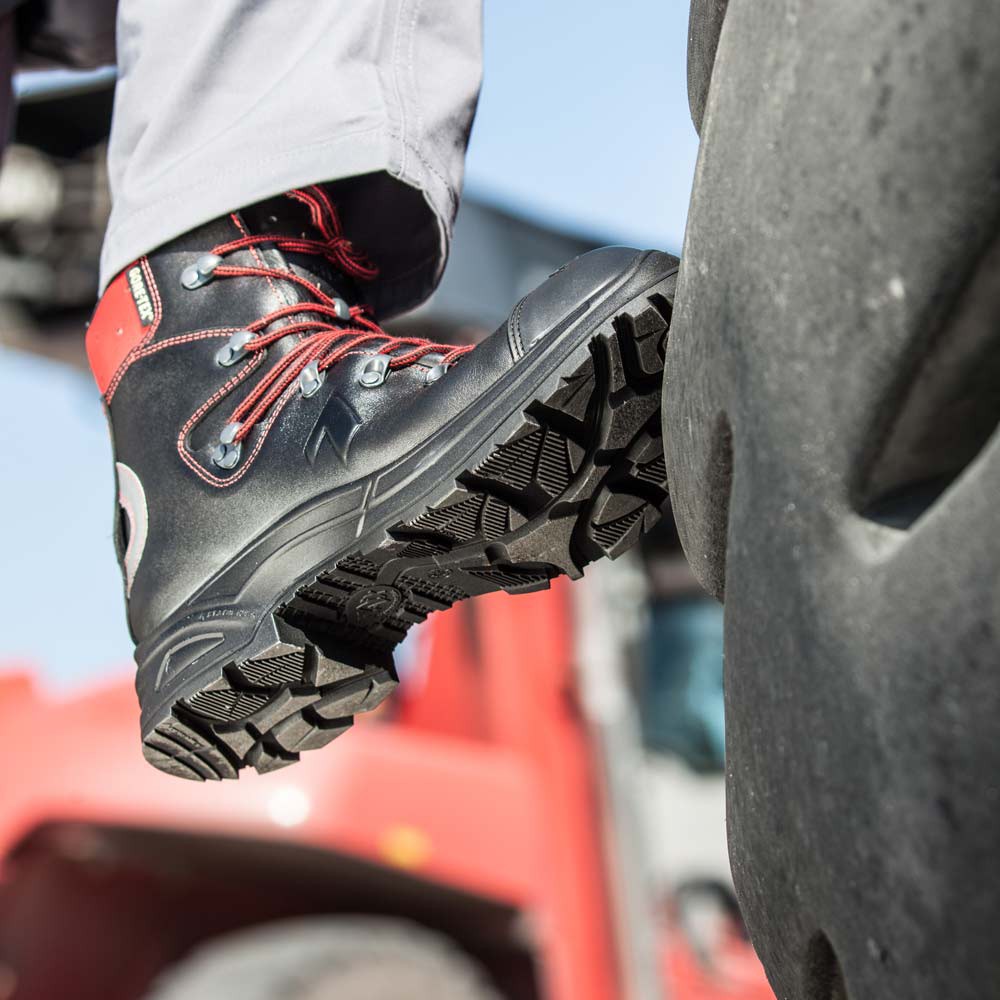HAIX UK Sales Manager Simon Ash discusses investing in high-quality footwear creates better choices for the environment.
Every year, around 149 million pairs of shoes are thrown into landfills in the UK. As footwear is manufactured, transported, worn and discarded at a rapid pace, the impact spreads far beyond the environment. Fast-paced supply chains often rely on cheaper materials and manufacturing processes that are outsourced overseas, resulting in a commodity-driven process that causes social and environmental damage.
Consumers, non-governmental organisations, governments and other stakeholders are ramping up the pressure for businesses to commit to supply chain transparency and ethical production across a broad spectrum of industries. However, in the world of workwear, there still needs to be a fundamental shift from solely encouraging ethical procurement of well-designed and superior-quality boots to considering both this and the maintenance and repair of the shoes.
Partnerships like the one HAIX has with the Boot Repair Company can generate working relationships that complement both customers and the environment by minimizing workwear’s social and environmental impacts.
The Boot Repair Company, formed from two family businesses with over 120 years of experience, specialises in repairing boots made for fire, police, ambulance and other emergency services workers. All HAIX boots are manufactured in Europe which meets socially responsible guidelines, thoroughly designed using considered material choices and construction methods to withstand multiple terrains, environments, and activities that will provide years of protection and use Of the services available, repairs such as a full resole can double the enduring life expectancy of HAIX footwear, further preserving the investment and quality of the PPE.
The Boot Repair Company’s Director, Tom Forbes, suggests that, “Regularly inspecting safety boots is particularly important for emergency service workers to avoid unnecessary injury. However, while a sole will become worn with use, a nicely broken-in upper can escape virtually unscathed and have tons of life left in it. We’ve found that HAIX boots can be re-soled around three times because the thick upper leather is so strong. The timeframe for a repair will depend on occupation, the job hazards encountered, how often the boots are worn, and even the wearer’s size and weight.
Ultimately, good boots are like old comrades. We take pride in knowing that we can minimise waste and help more people keep their footwear for longer.”
To help achieve a circular footwear economy, we need an industry-wide shift to make ethical workwear maintenance as important as ethical procurement practices. Businesses are required to maintain their premises, equipment and company vehicles, to a high standard, with all of these being highly considered choices. Why does this not extend to their footwear?
For safety boots, there is a business case as well as an environmental case for investing in high quality, durable footwear that wearers will get many years out of, and subsequently be able to access boot repairs to extend the life even further. Footwear that is also made as durable as possible means that wearers can minimise waste and organisations can buy better, not buy more.
Using high-quality materials can extend the life of footwear and encourage prolonged use. HAIX shoes are put through their paces to ensure that they exceed the minimum standards as much as possible, including undergoing a series of over 100 material and quality assurance tests, replicating the day-to-day challenges of wearers, who spend most of their time on their feet. Setting this high standard for footwear results in boots that are higher quality, and last longer.


